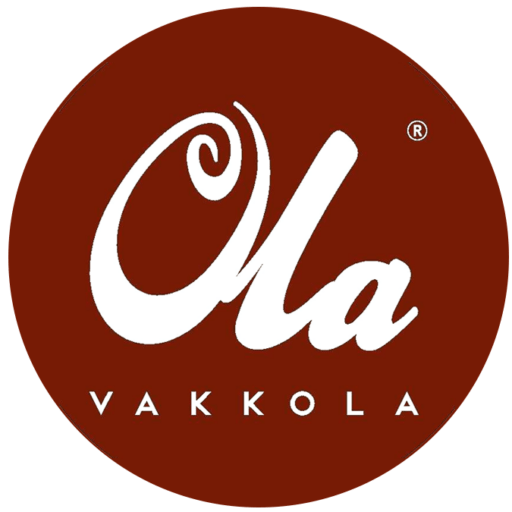Event Planning Checklist: How to Organize a Stress-Free Corporate Event
Corporate events, whether conferences, seminars, product launches, or networking sessions, require meticulous planning to ensure everything runs smoothly. A well-organized event enhances your company’s reputation and creates a lasting impression on attendees. To help you execute a stress-free corporate event, here’s a detailed event planning checklist to guide you from start to finish.
1. Define Your Event Goals and Objectives
Before jumping into logistics, identify the key purpose of your event:
- What is the primary goal? (Networking, product launch, employee engagement, training, etc.)
- Who is the target audience? (Employees, clients, partners, media, etc.)
- What are the expected outcomes? (Brand awareness, business leads, knowledge sharing, etc.)
A clear event objective will guide all your decisions, from venue selection to budgeting.
2. Set a Budget
A well-defined budget helps prevent overspending and ensures resource allocation for critical aspects. Key expenses to consider:
- Venue rental (includes seating, stage setup, lighting)
- Catering (food and beverages)
- Audio-visual equipment (microphones, projectors, screens)
- Marketing & branding materials (banners, invites, social media promotions)
- Guest speakers, performers, or panelists
- Photography and Videography
- Event staffing & logistics
Having a contingency fund (10-15% of the total budget) is recommended to cover last-minute expenses.
3. Choose the Right Venue
Your venue sets the tone for the entire event. Consider the following while selecting a corporate event venue:
- Location: Should be easily accessible for attendees.
- Capacity: Ensure the space accommodates all guests comfortably.
- Facilities: Look for Wi-Fi, AV equipment, power backup, and parking availability.
- Catering options: Some venues offer in-house catering, which simplifies planning.
- Customization options: Flexible seating arrangements and branding opportunities.
Ola Vakkola Banquet Hall in Santacruz offers an ideal setting for corporate events with its prime location, modern amenities, and customizable setups.
4. Create a Detailed Event Timeline
A well-structured timeline ensures all aspects of the event are executed smoothly. Example:
One Month Before the Event:
✔ Finalize venue, date, and agenda.
✔ Send invitations and start promotions.
✔ Confirm speakers, panelists, and special guests.
✔ Arrange for required permits and approvals.
Two Weeks Before the Event:
✔ Conduct a site visit and finalize setup arrangements.
✔ Check audio-visual equipment and test presentations.
✔ Confirm catering menu and logistics.
✔ Assign event roles to team members.
One Week Before the Event:
✔ Send event reminders to attendees and speakers.
✔ Conduct a final run-through of the event schedule.
✔ Print name badges, seating plans, and event materials.
Event Day:
✔ Arrive early and conduct last-minute checks.
✔ Ensure smooth registration and check-in process.
✔ Monitor guest experience and handle issues promptly.
5. Promote Your Event
To ensure a strong turnout, a strategic marketing plan is essential.
- Email campaigns: Send invitations and reminders.
- Social media promotion: Use LinkedIn, Twitter, and Instagram to create buzz.
- Press releases: Get media coverage for product launches or milestone events.
- Event website or landing page: Provide key details like agenda, speakers, and registration links.
6. Plan Guest Experience & Engagement
A successful corporate event goes beyond logistics—it should engage and inspire attendees.
- Seamless Check-in: Use digital registration or QR code check-ins.
- Interactive Sessions: Incorporate Q&A panels, live polls, and breakout discussions.
- Networking Opportunities: Arrange designated networking breaks.
- Branded Event Swag: Distribute customized merchandise or digital giveaways.
7. Arrange Audio-Visual & Tech Support
Technical failures can disrupt even the best-planned events. Test all equipment in advance:
- Microphones and speakers – Ensure clarity for large audiences.
- Projectors and screens – Display presentations effectively.
- Wi-Fi connectivity – Essential for virtual attendees or live streaming.
- Backup solutions – Have spare cables, microphones, and power sources ready.
8. Organize Catering & Refreshments
Food plays a crucial role in keeping guests energized and engaged.
- Offer tea/coffee stations for morning sessions.
- Provide light snacks or buffet meals based on event duration.
- Consider dietary restrictions and vegetarian/non-vegetarian preferences.
Having onsite catering services like those at Ola Vakkola Banquet Hall ensures a smooth experience.
9. Capture the Event & Gather Feedback
To maximize the impact of your corporate event:
- Hire a professional photographer & videographer to document key moments.
- Conduct post-event surveys via email or online forms to gather attendee feedback.
- Share event highlights and key takeaways on social media and company blogs.
10. Post-Event Follow-Up
The event doesn’t end when guests leave. Strengthen business relationships by:
- Sending thank-you emails to attendees and speakers.
- Sharing event recordings, photos, or presentations.
- Scheduling follow-up meetings or one-on-one networking sessions.
Final Thoughts
Hosting a corporate event in Mumbai doesn’t have to be overwhelming. By following this comprehensive event planning checklist, you can ensure a seamless and engaging experience for all attendees.
Looking for the perfect venue for your next corporate event? Ola Vakkola Banquet Hall in Santacruz offers state-of-the-art facilities, customizable packages, and top-notch service to make your event a success.
📞 Contact us today to book your event!
